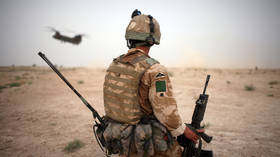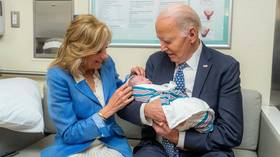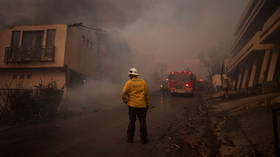Some things change, some stay the same: Moscow mayor gets to work

Sergey Sobyanin's first days as Moscow mayor have provided some vivid signs that he is willing to turn things around in the Russian capital.
Even at the first glance, they could not have been more different. Handsome, well-spoken Sobyanin in an expensive suit versus dowdy, vernacular Yury Luzhkov in his old-fashioned cap. Someone who looks like a high-flying exec as opposed to the man whose strong supporters can still be found among Moscow's formidable babushkas.
Those who must have noticed the difference among the first ones are opposition groups who tried to gather on Triumfalnaya Square under Luzhkov, without much success. On Monday, the head of the Moscow Helsinki Group, Lyudmila Alekseeva, left the Mayor’s Office to announce that 800 protestors will be allowed for the first time to hold their rally on the square. Alekseeva described the news as “a big step forward” made by the new Moscow Mayor, which “must be welcomed.”
However, Sobyanin's first public event after inauguration was a Saturday tour of the capital's construction sites. Instituted by Luzhkov more than a decade ago, the inspections allowed the previous mayor to shape and maintain his handyman image – completed with a leather cap and outbursts of criticism.
Sobyanin paid heed to the tradition. Clad in a leather jacket – no cap yet – he toured several sites, lashing out fiercely against the policies of his predecessor. With Moscow traffic jams considered among the worst in the world, Sobyanin said that preventing a complete transportation collapse was among his top priorities.
“In road construction, we can no longer afford to do everything at once. Over the years, Moscow has accumulated a lot of projects that can't move beyond initial stage. Such undertakings make the lives of Muscovites more difficult [than if they never had been initiated],” the new mayor said.
The prime example of that, according to Sobyanin, is Moscow City – a cluster of skyscrapers designed with a thought of becoming the financial heart of the capital, just a stone’s throw away from the city center.
Calling the project “a mistake in city planning”, Sobyanin criticized its inability to accommodate a large number of cars, both in terms of roads and parking space.
“What's done is done. We need to complete the construction as soon as possible. We need to provide the district with the necessary infrastructure. We need to prevent the transportation collapse. And, finally, we need to make sure that everything that has been built functions efficiently.”
Sobyanin said that one way to ease traffic in the capital was to move cargo terminals beyond city borders. He also said that any traffic-intensive projects should not be implemented without first assessing how they will impact the existing road infrastructure.
Man of the people
Luzhkov long prided himself on being a mayor for Joe the Plumber, or, taking on a more Russian example, Anna Ivanovna, the pensioner. Free public transport for the elderly and pension benefits had secured him stable ratings among the most disciplined part of the Russian electorate. And Sobyanin is eager to follow in his predecessor's footsteps.
In one of his first public statements after the inauguration, Sobyanin pledged to keep all the benefits in place and even promised to increase them. So much so that he asked the city parliament to postpone considering the city's next-year budget before his team has a chance to submit amendments on how to boost social benefits.
And if that was not enough to win over Anna Ivanovna, the pensioner, then Sobyanin's next decree was sure to do the job. On Monday, Sobyanin signed a decree to decrease the annual pipe maintenance period from 14 to 10 days, meaning that next summer Muscovites will have to go without hot water for 4 days fewer.
Oksana Boyko, RT












